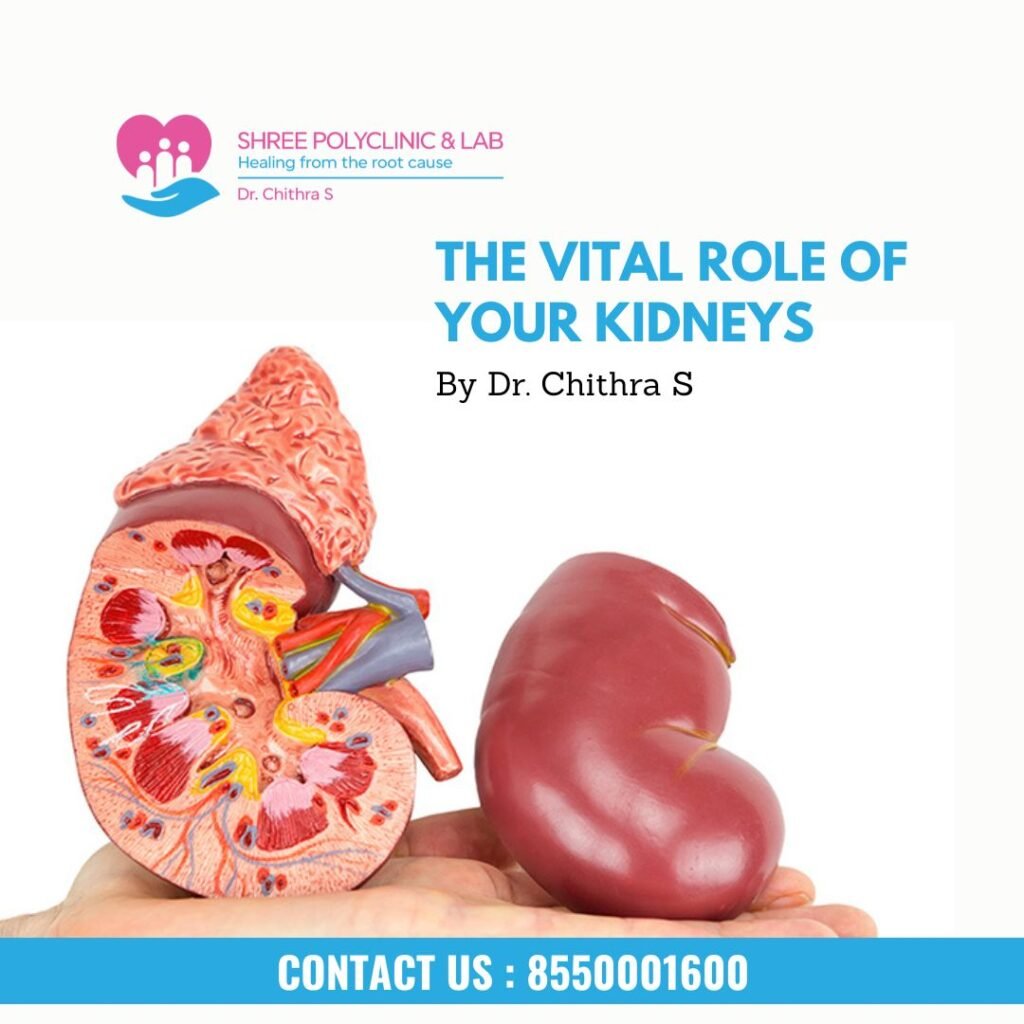Your kidneys are small but powerful organs. They remove waste, balance fluids, and support overall health. Yet, many people ignore kidney health until problems appear. Understanding their role can help you take action early.
What Do Your Kidneys Do?
Your kidneys perform essential functions every day. They work hard to keep your body balanced and healthy.
1. Removing Waste and Toxins
Every day, your kidneys filter toxins and excess fluids from your blood. These waste products exit the body through urine. Without this process, harmful substances would build up.
2. Regulating Blood Pressure
Your kidneys control blood pressure by managing fluid levels. They also produce hormones like renin, which helps maintain stability.
3. Balancing Electrolytes
Electrolytes such as sodium, potassium, and calcium are vital for your body. Your kidneys keep these minerals at safe levels to support nerve and muscle function.
4. Producing Red Blood Cells
Healthy kidneys produce erythropoietin (EPO), a hormone that stimulates red blood cell production. More red blood cells mean better oxygen supply to your organs.
5. Supporting Bone Health
Your kidneys activate vitamin D, which helps your body absorb calcium. This process keeps bones strong and reduces the risk of osteoporosis.
Why Early Kidney Care Matters
Kidneys play a key role in your well-being. Even a small decline in function can cause serious health problems. Early care helps prevent long-term damage.
1. Preventing Chronic Kidney Disease (CKD)
CKD develops gradually and can lead to kidney failure. High blood pressure, diabetes, and poor lifestyle choices increase the risk. Regular checkups can detect early signs and prevent complications.
2. Lowering the Risk of Kidney Stones
Kidney stones are painful, but they can be prevented. Drinking plenty of water, eating a balanced diet, and reducing salt intake all help lower the risk.
3. Managing Blood Pressure and Diabetes
Your kidneys regulate blood pressure and blood sugar. Keeping these levels under control protects kidney function. A healthy diet, exercise, and medication (if needed) are essential.
4. Avoiding Infections and UTIs
Urinary tract infections (UTIs) can spread to the kidneys if untreated. Staying hydrated and practicing good hygiene reduces the risk of infection.
5. Boosting Overall Well-being
Healthy kidneys improve energy levels and immune function. Poor kidney function can cause fatigue, swelling, and difficulty concentrating.
Tips for Healthy Kidneys
- Drink Plenty of Water: Staying hydrated supports kidney function and prevents stones.
- Eat a Balanced Diet: Choose fresh fruits, vegetables, and whole grains. Avoid processed foods and excess salt.
- Exercise Regularly: Physical activity helps regulate blood pressure and keeps kidneys strong.
- Limit Painkillers: Overusing NSAIDs like ibuprofen can damage kidney function over time.
- Quit Smoking and Reduce Alcohol: Both increase the risk of kidney disease and other health issues.
- Schedule Regular Checkups: If you have diabetes, high blood pressure, or a family history of kidney disease, routine tests can help detect early problems.
Conclusion
Your kidneys work every day to keep you healthy. However, they need your care too. Small lifestyle changes can make a big difference.
This World Kidney Day, take a step towards better kidney health. Stay hydrated, eat well, and get regular checkups. If you notice any symptoms or have risk factors, consult a doctor as soon as possible.
Stay healthy, stay hydrated! 💙 #KidneyHealth #WorldKidneyDay #HealthyKidneys

